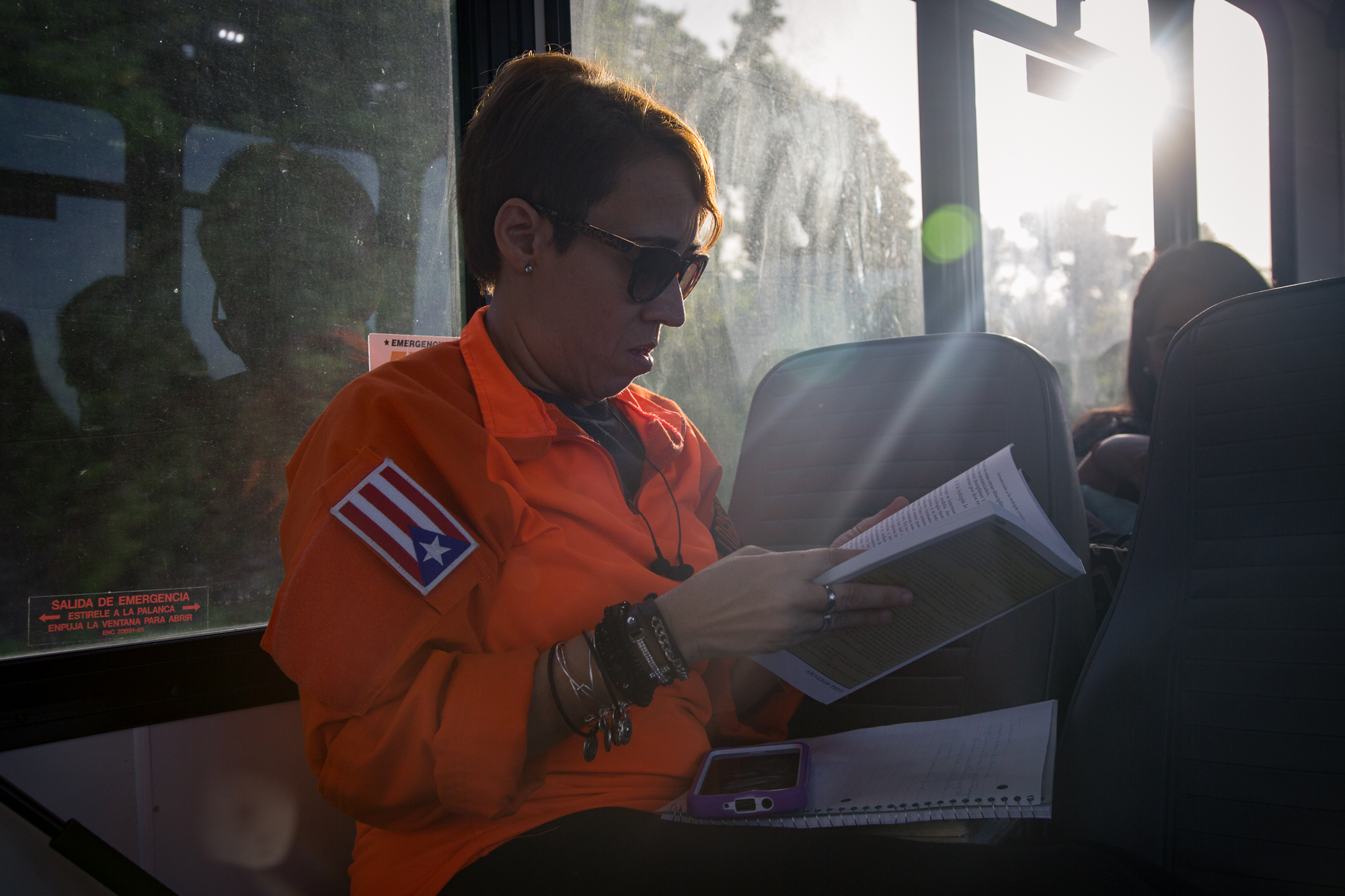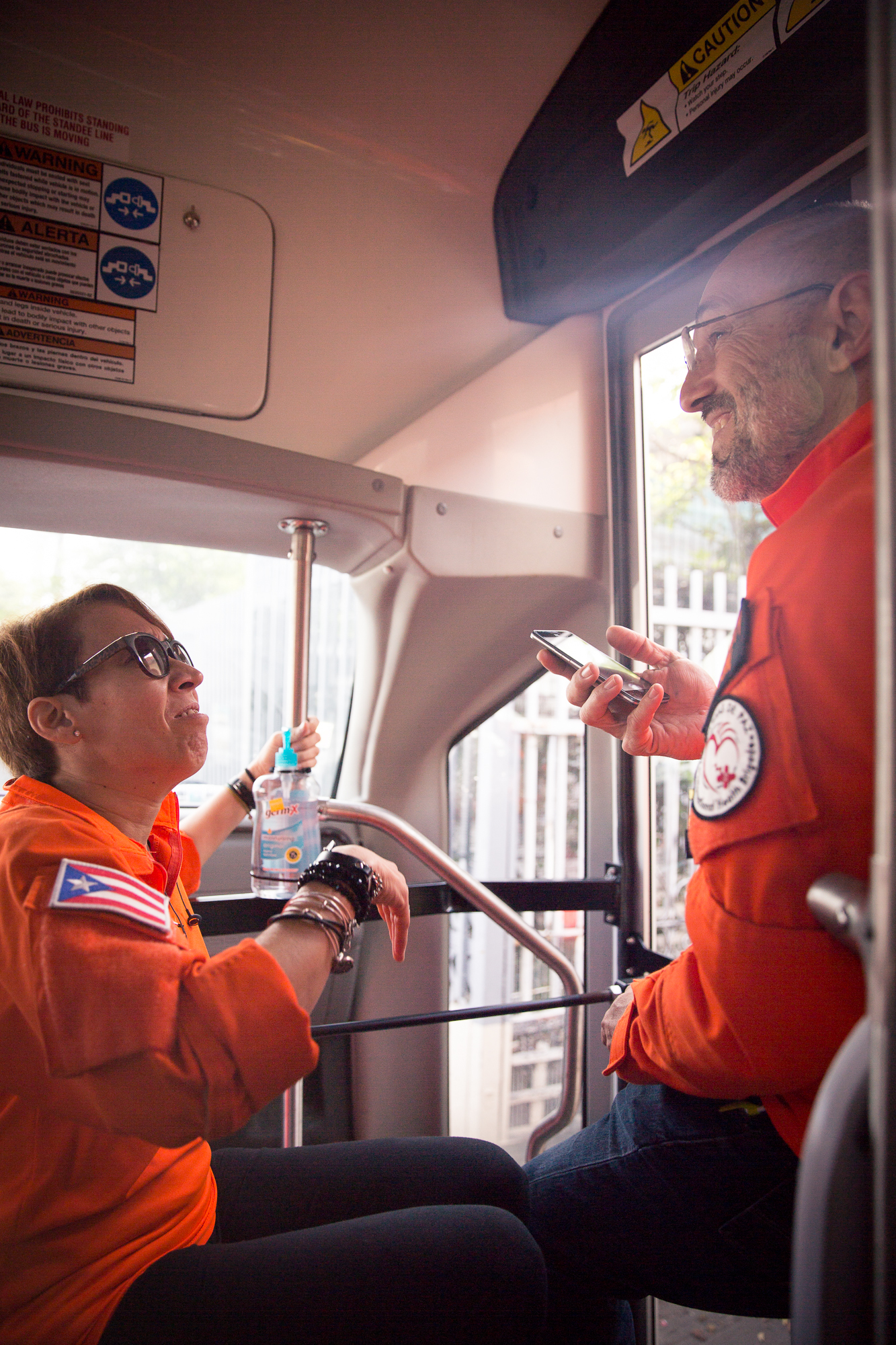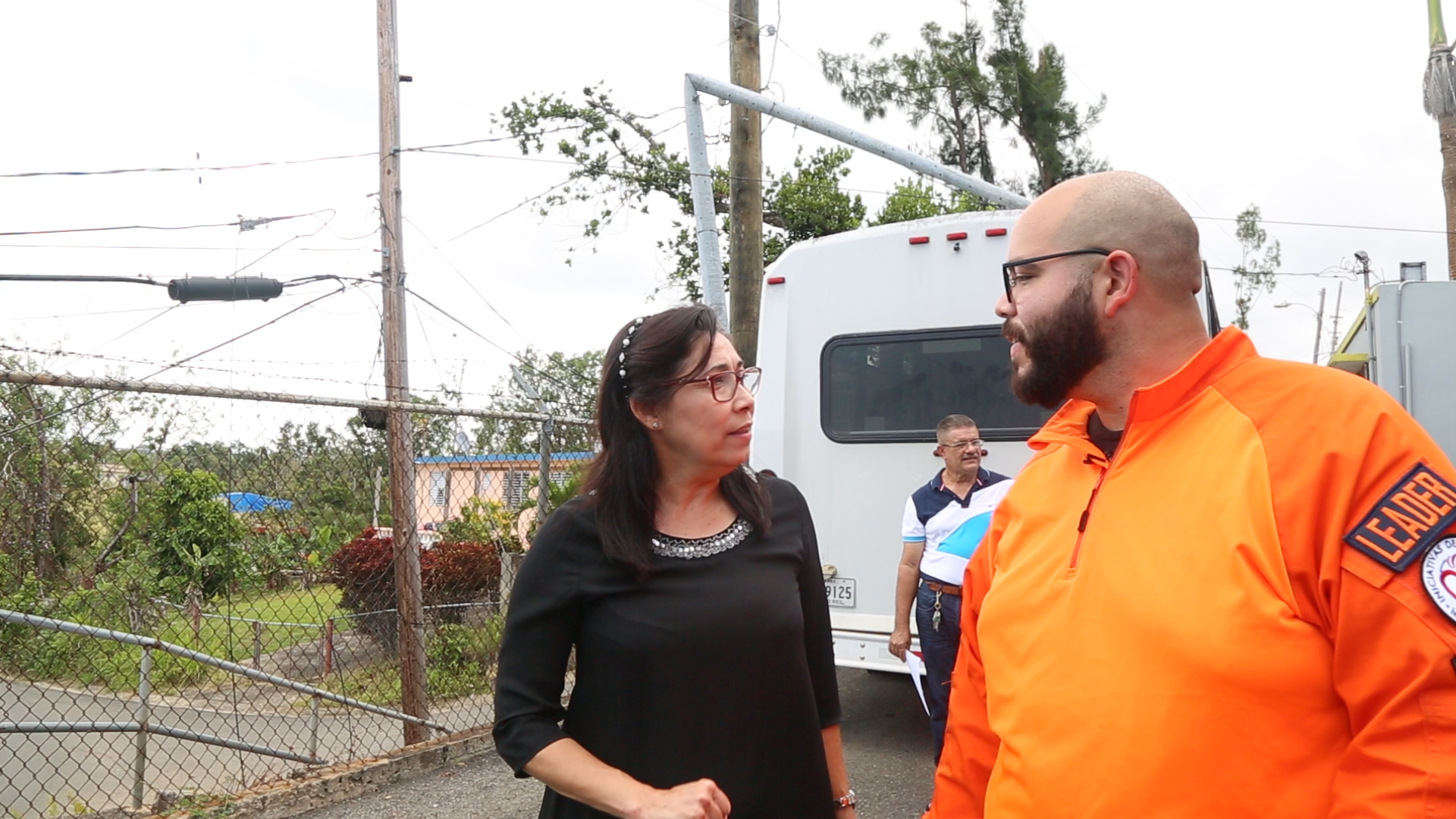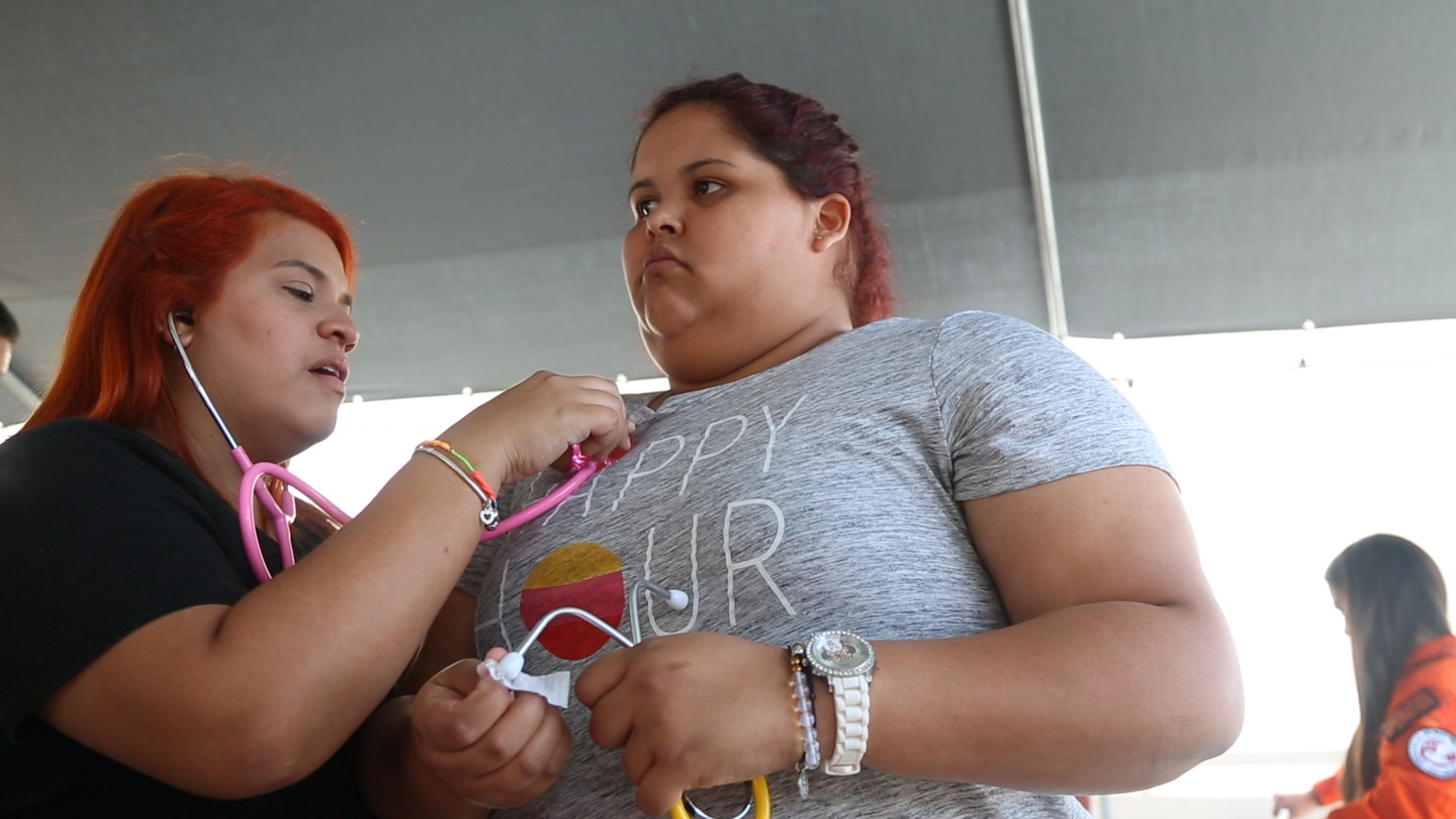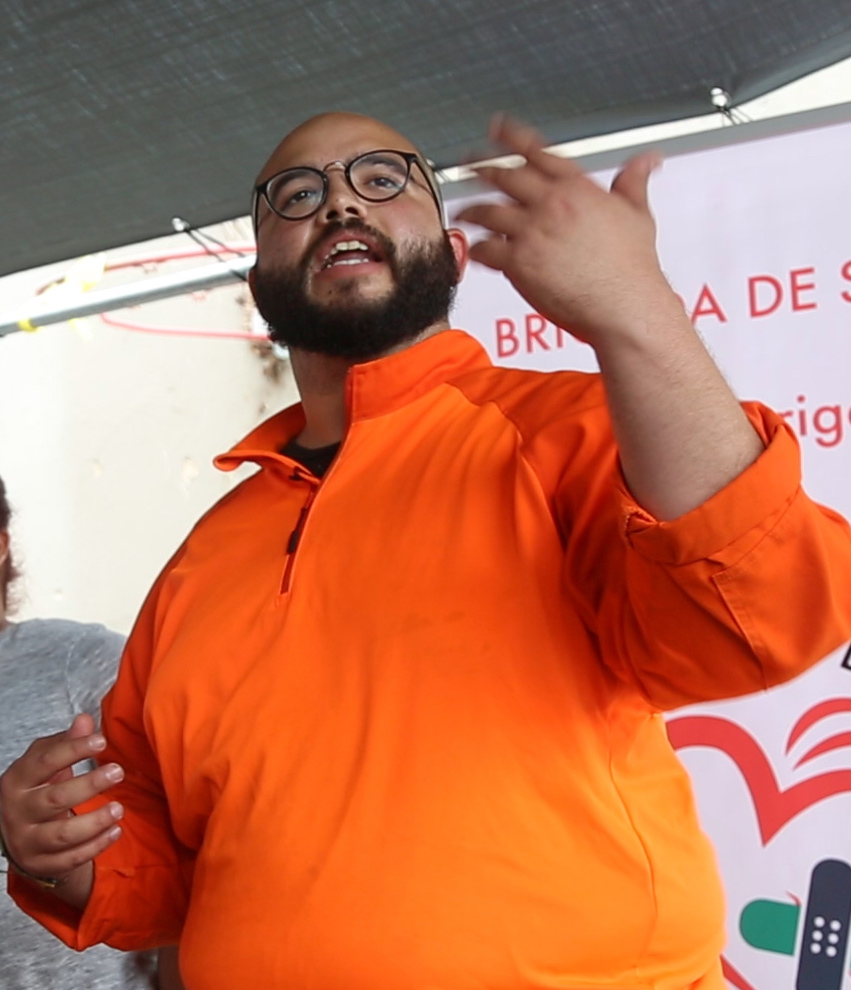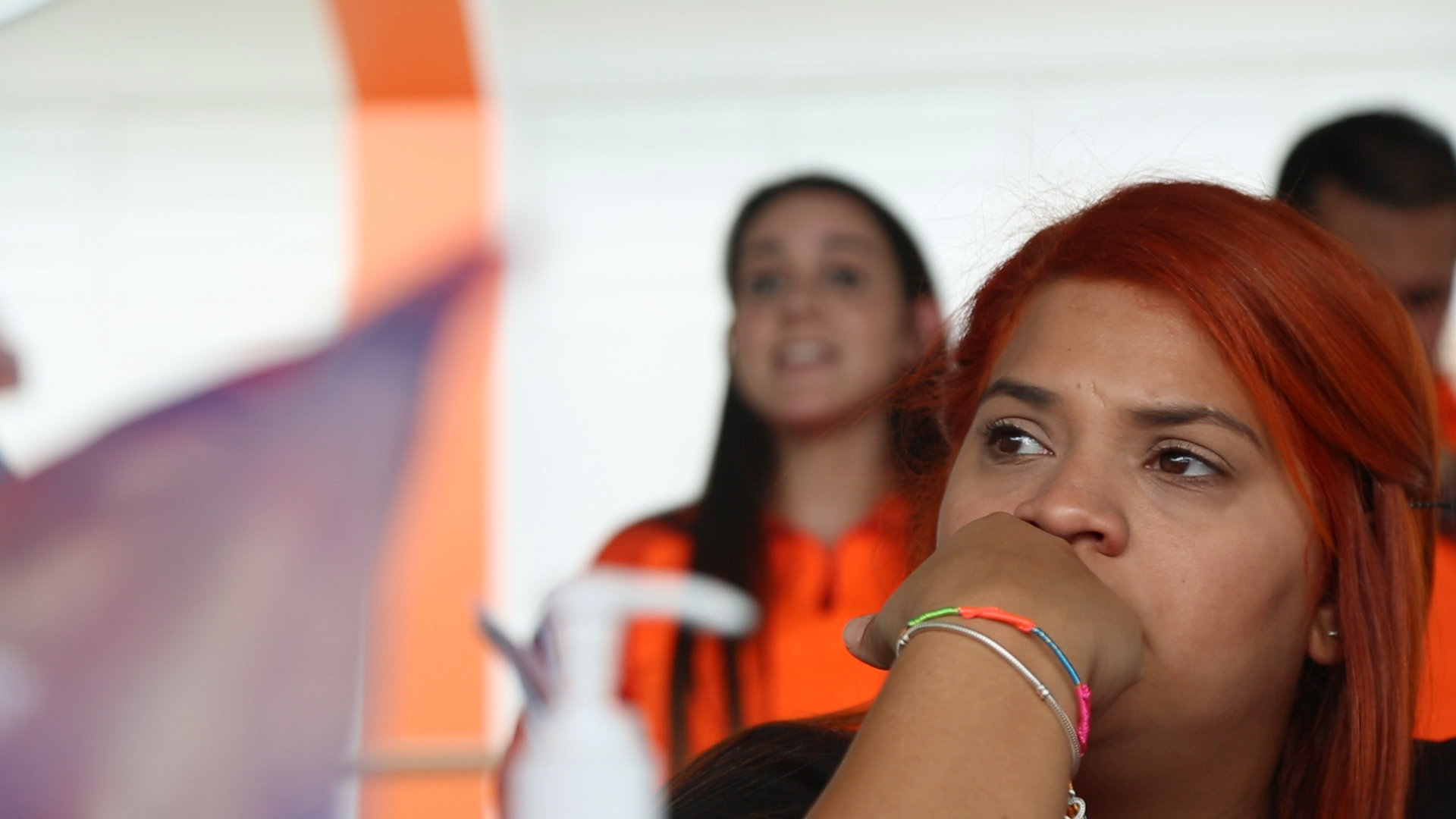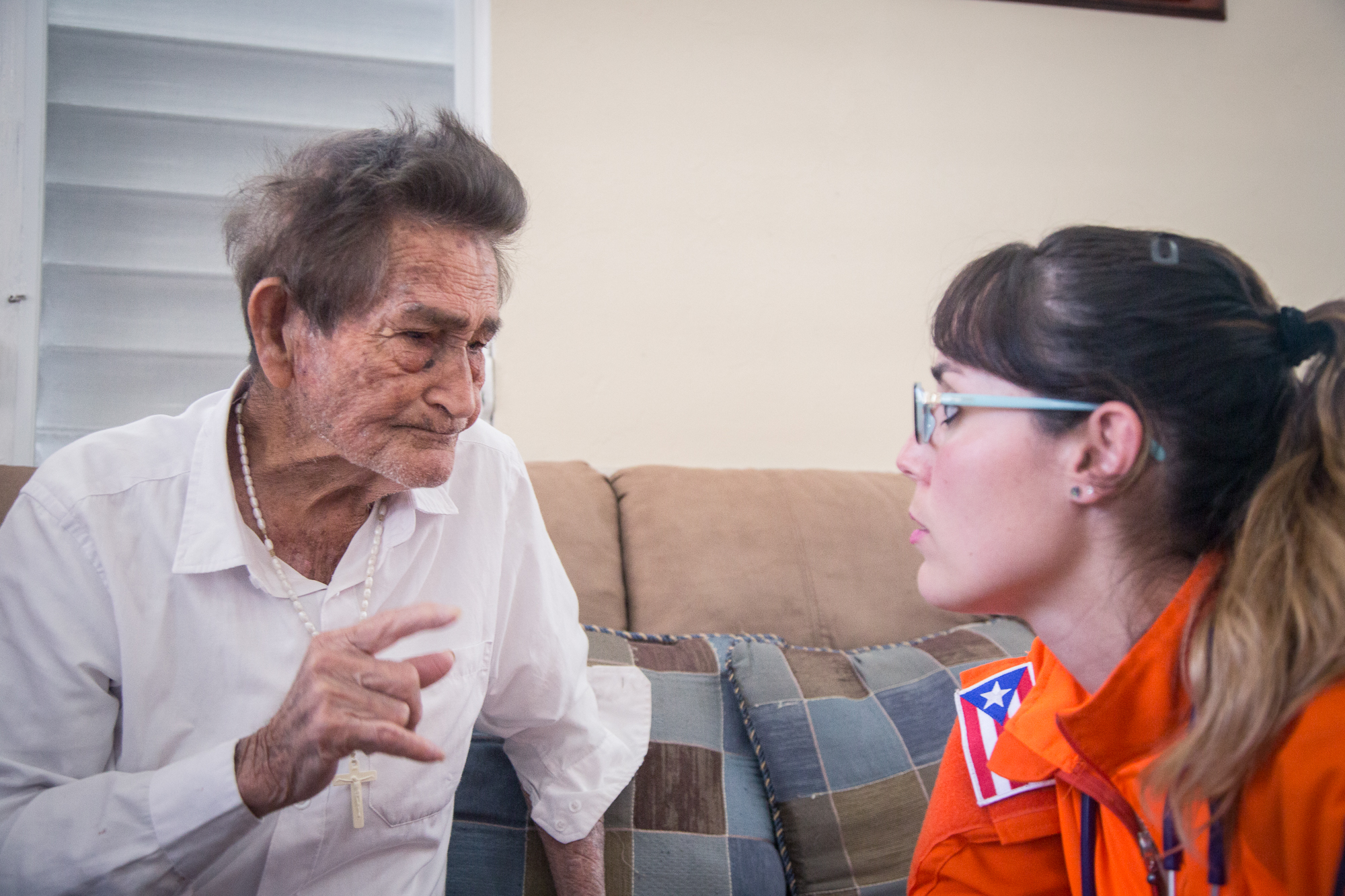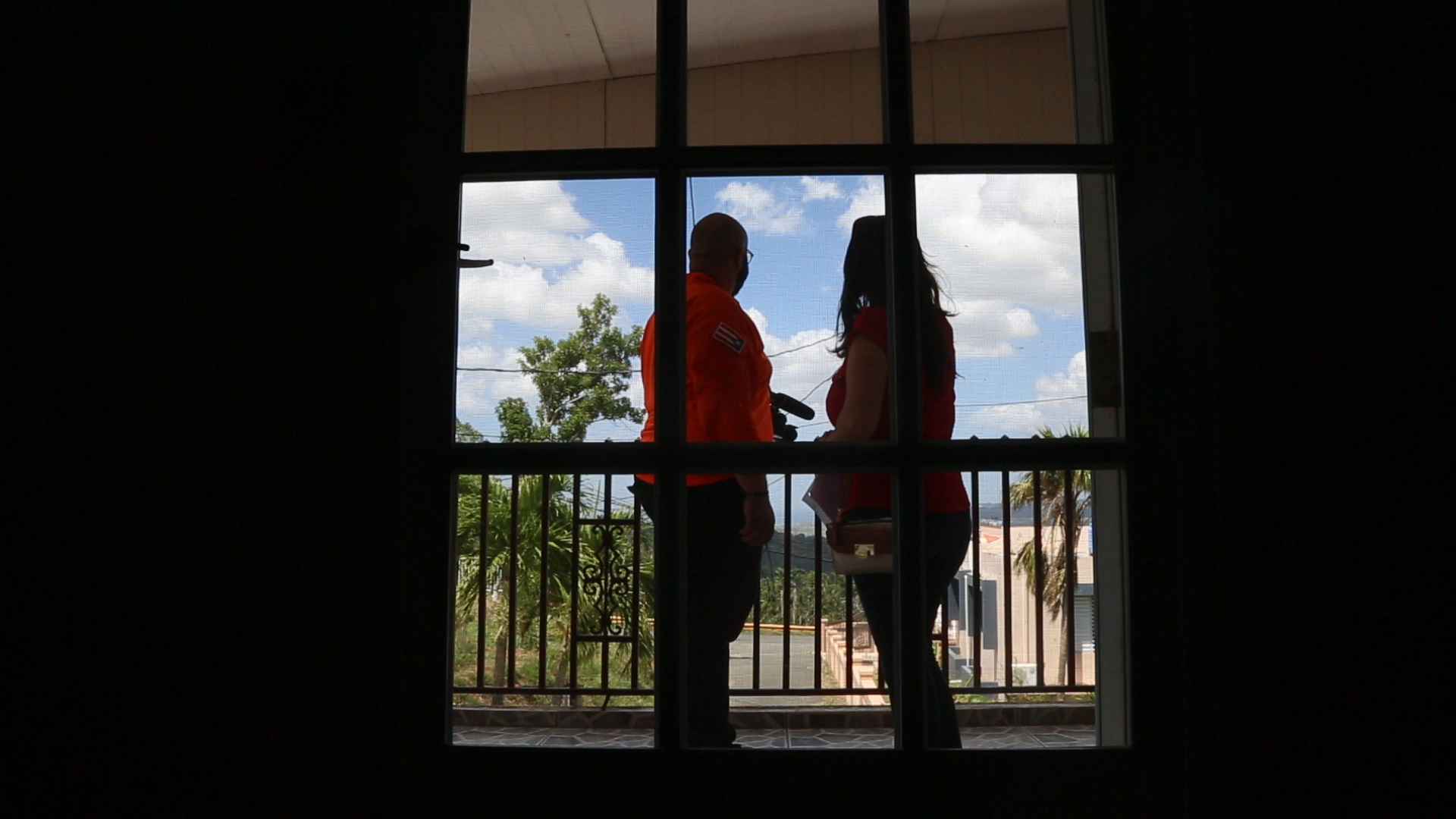the Health Brigade
It’s about 1 p.m. in a small clearing outside of a house on the west coast of Puerto Rico. Iniciativa Communitaria, an international-turned-local medical brigade, is making house calls to those who couldn’t make it to the temporary base, where several doctors and community members are waiting. The health brigade has been up since around 5 am, but no one looks tired. Jose Vargas waits outside for a radio reply from a fellow brigade-member, standing with me in the strong sunshine and talking about Hurricane Maria.
“We need to prepare better. And this is hard because we’re still trying to get recover from what happened, and we still have a long run to make this place safer. To make each community safer,” Jose says, looking over the hilly countryside towards the open sea.
Jose, the leader of Iniciativa Communitaria, radios for another section of the brigade to check in. Once the brigade sets up the base, they often split into smaller groups to visit people who can't make it to base.
“But we are very tough people. We’ve gone through a lot of things and in general Puerto Ricans are very strong. Even if they don’t have too much, they make you feel like they’ve got enough to be happy. And that’s hope.”
That’s just the kind of person Jose is. Always looking forward, full of hope. Alex Korman, Danielle Chemtob, MaryRachel Bulkeley, Marissa O’Neill and I had the honor of following Jose and the team from Iniciativa Communitaria for a week to tell their story. Jose always has his nose to the future.
The team inside the house finishes up and we move on to the next house. And the next. And the next. Out in the countryside, healthcare can be more difficult to get access to and the house-visit list is long. Some visits are quick and easy- routine checks. Others are a bit more difficult.
The sun is beating down by the time we start reaching the end of our list, but the houses are cool and quiet. In Julia’s house, the doctor starts her check-in. It soon becomes apparent that the doctor is concerned. She’s not eating. When Jose checks the kitchen, it becomes apparent that she's not eating because she doesn't have food. "Julia, You have to eat," he tells her. "We're family."
After a few more tests and promises to return, we head back to base for lunch and more supplies. On the way back, the team tells me that she’s anxious because her family moved to the mainland US, so she’s all alone.
After lunch, we start on our second round with a few return trips to people who didn’t get everything they needed during the first trip. One of those return trips is to Julia's house. The doctor brings her food and medicine. One of the leaders of Iniciativa Comunitaria, Ingrid Morales, brings her a doll she found in a thrift shop.
“Because she looks like a doll,” she says.
It’s hard to leave the second time around. Julia hugs everyone goodbye for a long time. The house feels as insulated from the troubles of the outside world as from the wind screaming around the mountains. As we get into the car to leave, Jose stops me and points at Julia, who’s standing in her doorway, holding the doll and watching us leave.
“Go take her picture,” he says.
“It’s a gift,” Ingrid adds.
Julia has been living alone since her family moved to the US. Ingrid, of Iniciativa Communitaria, gave her a doll to keep her company.
I’ve had many blessings and responsibilities, but in that moment I fully felt what a gift and a responsibility these people had given to me. They were sharing a part of their lives with me- even the most difficult parts. This is something that I think the Iniciativa Communitaria team understands well. They don’t come into communities as saviors, but rather as neighbors, friends, and family.
Stories like this one and many others will be release after April 23rd as Aftermath, a multimedia project on Puerto Rico’s recovery. Aftermath will have a public screening at UNC on April 23rd, 2018 and be released shortly after. For more information on the screening or the project, find us on Facebook.
To learn more about Aftermath and what our journey was like, continue the story in “Aftermath in Puerto Rico”.
To learn more about Iniciativa Communitaria, follow them on Facebook.
